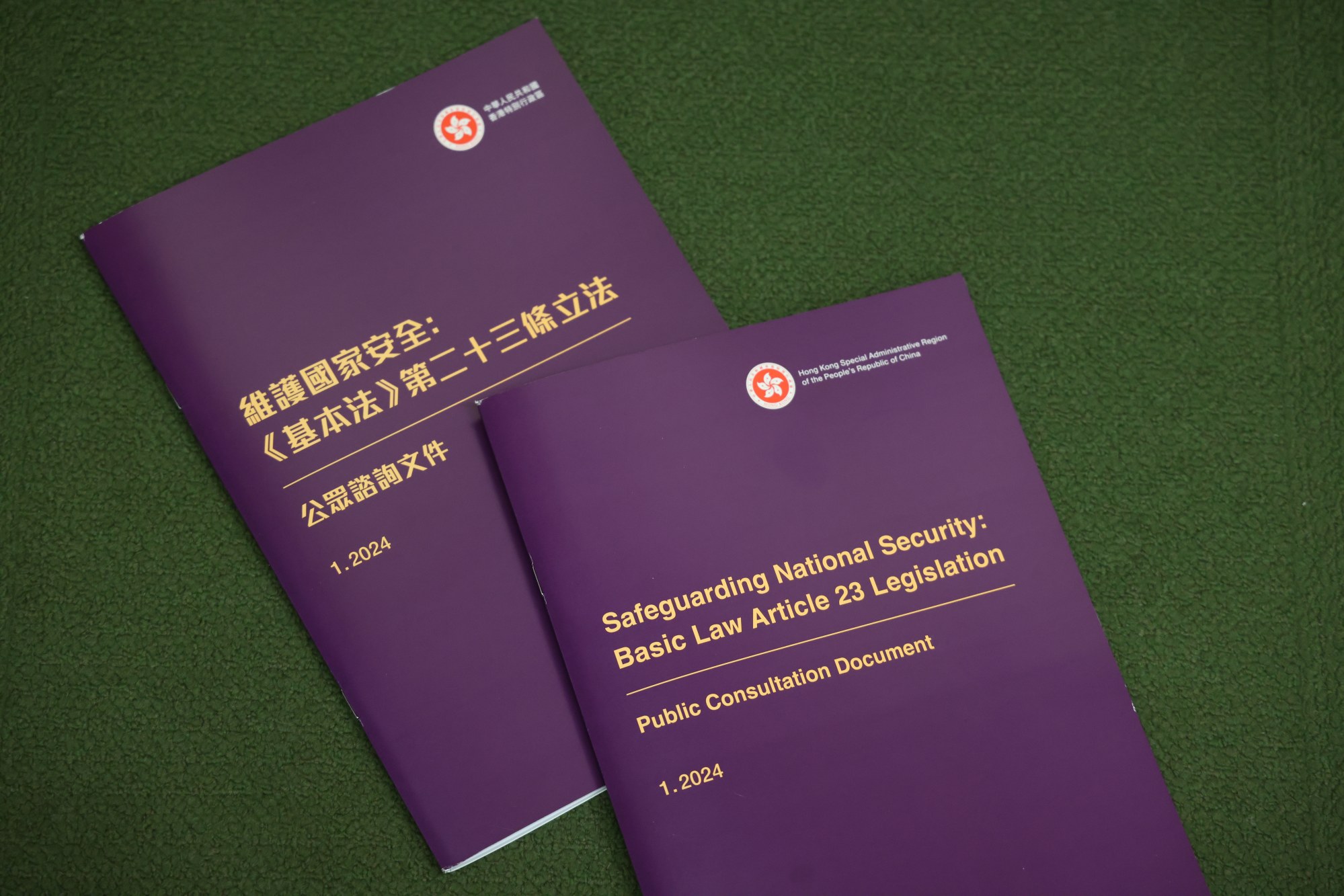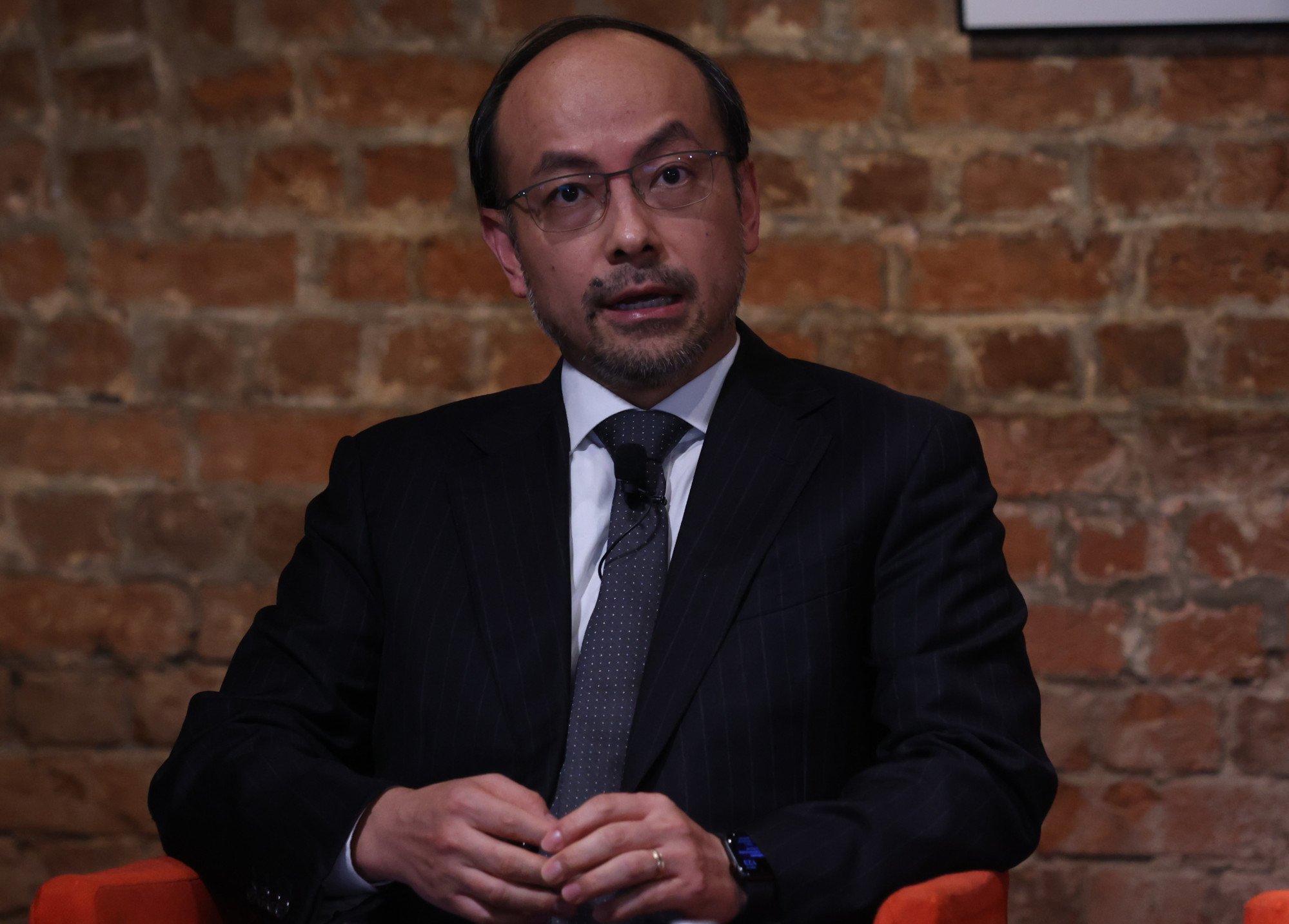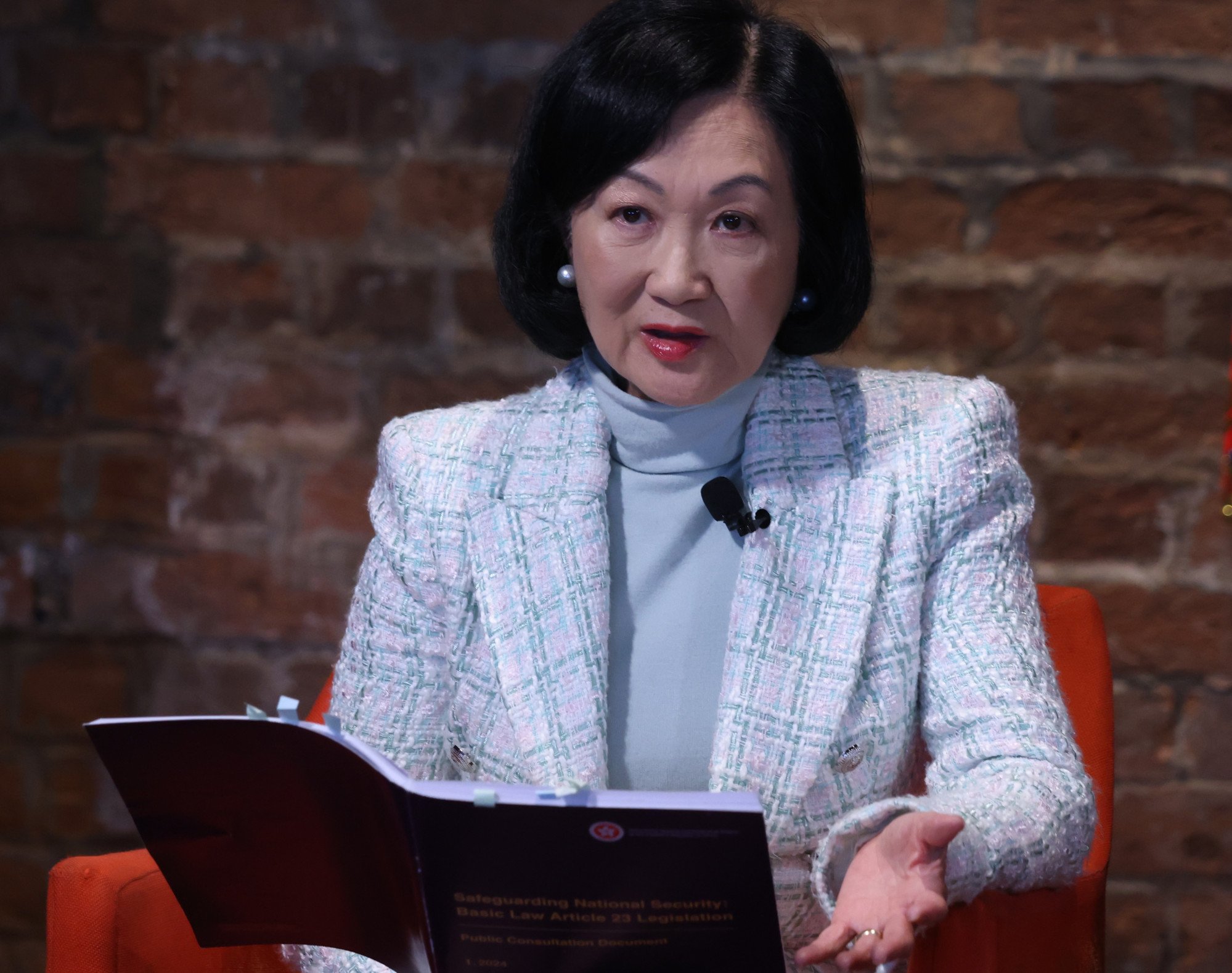
Explainer | First draft of Hong Kong domestic security law will be unveiled soon, here’s a look at a list of fears and concerns
- Lawmakers will soon have first reading of domestic security law draft, after one-month public consultation ended without much fanfare
- The Post sets out what the consultation document says will be done and lists out key concerns raised by different players, ahead of the launch of the official bill
The exact timing of the submission of a full draft remained unclear, but authorities on Wednesday presented a summary of the comments received in the consultation to a joint panel of the Legislative Council and pointed to new areas to be considered. The panel will gather again on Thursday for the second of two specially convened meetings.
The government issued a 110-page document on January 30 setting out what the legislation could look like. After the consultation period ended, it concluded that its proposal had received majority support from society while several foreign countries expressed concerns over the possible erosion of residents’ rights and freedoms.
Hong Kong leader vows to enact domestic security law ‘as soon as possible’
The legislation, previously shelved by the government two decades ago after half a million took to the streets against it, drew largely muted attention locally this time amid a changed political landscape of “patriots ruling” Hong Kong. Under this principle, only those who are deemed “patriots” can be lawmakers shaping government policy or district councillors overseeing local governance.
The Post sets out what the document says will be done and lists key concerns raised by different players, ahead of the launch of the official bill. Let’s start at the beginning:
1. What is Article 23?
Basic Law Article 23 requires the city to enact its own laws to ban any act of treason, secession, sedition, subversion against the central government, or theft of state secrets, to prohibit foreign political organisations from conducting political activities in the city, and to prohibit local political groups from establishing ties with their foreign counterparts.
Hong Kong authorities have argued that the city must fulfil its constitutional obligation to enact Article 23 as soon as possible.

2. What will the new legislation cover?
The new law will cover five new types of offences: treason; insurrection, incitement to mutiny and disaffection, and acts with seditious intention; theft of state secrets and espionage; sabotage endangering national security and related activities; and external interference and organisations engaging in activities endangering national security.
3. What are the concerns raised so far?
From submissions and feedback made public, three broad areas of concern have emerged. The first has to do with “seditious intention”. The second is on the definition of state secrets and whether it is too broad. The third has to do with defining “external interference”.
4. What about ‘seditious intention’ that has caused worries?
The government proposes that “seditious intentions” cover, among other things, the intention to bring anyone in the city into hatred or disaffection against a state institution, the constitutional order, executive, legislative or judicial authority of the local government or to induce hatred among local residents or residents of different regions of China.
The Hong Kong Journalists Association said this proposal risked limiting free speech and press freedom.
The Bar Association of Hong Kong has urged the government to consider narrowing the scope of the proposed sedition offences by introducing “incitement to violence” as a requirement for some of the actions to be considered seditious.
Hong Kong security chief slams top US envoy in city, defends Article 23 legislation
The legal body argued even with the requirement, the offence would capture most instances of seditious conduct. The government ruled out the Bar Association’s suggestion in the consultation summary submitted to Legco, arguing that the cumulative effect of leaving acts of inciting hatred against the authorities unchecked could lead to riots spiralling out of control.
Secretary for Security Chris Tang Ping-keung has reiterated that seditious charges cannot be brought for criticising the government as long as such remarks are fact-based.
Chong Ja Ian, an associate professor of political science at the National University of Singapore, said it was difficult to define concepts such as “intention” and “disaffection” in the consultation paper, as such sentiments rested inside people’s minds and were not directly observable.
5. What about the ‘external interference’ offence? Will it affect academic and diplomatic exchanges?
Diplomats and representatives from foreign chambers of commerce have expressed concerns over the “very broad” definitions and provisions of both state secrets and external interference, which they fear could cause serious implications for foreign citizens and businesses and diplomatic missions in Hong Kong.
Professor Simon Young Ngai-man, a legal expert at the University of Hong Kong (HKU), said there were fears that the revised espionage offence would stifle any contact and meetings with consulates, even if they were for legitimate reasons such as a discussion on a particular legal topic.
The Bar Association also called on the government to further refine and narrow the definition of “external forces” as currently framed in its “wide approach”, it could include “anyone who is subject to the lawful authority of another jurisdiction at any point in time”.

But Tang called the example invalid, saying an academic institution “does not fall under the criteria” of an external force and that the results of “poorly done research” would not be considered deliberate misrepresentation.
The government said in the Legco summary that it would target acts endangering national security with precision and define “external forces” with clarity, but did not elaborate further.
6. What about the scope of ‘state secrets’?
The consultation paper lists seven types of secrets that can equate to a state one if they are disclosed without “lawful authority” and are likely to endanger national security.
These include secrets such as those concerning major policy decisions on affairs of the country or Hong Kong, the construction of national defence or armed forces, diplomatic or foreign affairs activities of the country, and the economic and social development of the nation or city.
Hong Kong must complete Article 23 legislation to end ‘causes of chaos’: Beijing
The Hong Kong Journalists Association said “irrevocable damage” to press freedom could be caused under the broad definition of offences under the proposed law. It urged the government to set out concrete definitions of state secrets for reporters to assess the risk of their work, citing concerns that journalists might accidentally breach the proposed offences on publishing state secrets.
Security chief Chris Tang offered assurances that officials giving off-the-record previews about policies and measures to journalists was unlikely to result in the latter facing a state secrets offence, saying such information sharing was “very normal” and likely to be authorised.
7. Can one use the defence of ‘public interest’ or does the public have a right to know if one reveals a state secret?
Both the Foreign Correspondents’ Club and the Hong Kong Journalists Association have asked the government to consider the inclusion of a public interest defence clause in the legislation and to ensure journalists would not be targeted for doing their jobs.
The Bar Association and Law Society echoed the call, with the former saying the provision should apply to anyone and not just journalists.
The public interest defence was added to the 2003 national security bill in response to demands voiced during the consultation period.

Officials responded that authorities were actively looking into the inclusion of a “material public interest defence” with a high threshold, while noting the media should also use common sense to decide what contents were risky.
8. What else will change?
The consultation paper suggests that police need to have more powers to do a proper job of investigating potential crimes. It said postponing bail for arrestees will allow more time for police investigations and suggested imposing measures to prevent absconding and to tighten the threshold for the early release of inmates convicted of national security offences.
It referred to laws overseas where police officers of certain ranks can ban arrestees from consulting a particular lawyer or delaying the meeting. Under such laws, passports of fugitives wanted for a criminal offence could be revoked or they could be stopped from leaving the country.
Tang told Legco on Wednesday that the government would also consider terminating the fugitives’ business registrations and professional qualifications to make them “pay a price” for absconding.
Human rights lawyer Mark Daly feared the recommendations for detention extension and prohibiting arrestees from contacting their legal representatives might deviate from human rights or legal safeguards.
Officials spearheading the legislation said for checks and balances they would consider adding administrative measures or a court order for extending the detention period.
9. How will the proposed legislation affect Hongkongers’ freedoms and rights?
Authorities have given a public assurance that the law would align with standards under international conventions to protect Hongkongers’ rights and freedoms, while noting that they were not absolute.
The proposal, however, continued to spark concerns from foreign countries such as the United States, Britain, Australia and the European Union, which feared the new legislation, in addition to the Beijing-decreed national security law, would further curtail rights and freedoms.
Hong Kong accuses top US diplomat in city of ‘scaremongering’ over security law
Legal expert Simon Young pointed to concerns that some new offences might create a chilling effect.
He warned the proposed offence of “misprision of treason”, which criminalises failing to report someone who has committed treason to the proper authority within a reasonable time, could be used as “a heavy stick” against otherwise innocent friends and family members of wanted ones, and mislead people that it is a must to report on others regarding national security offences.
Additional reporting by Kahon Chan

